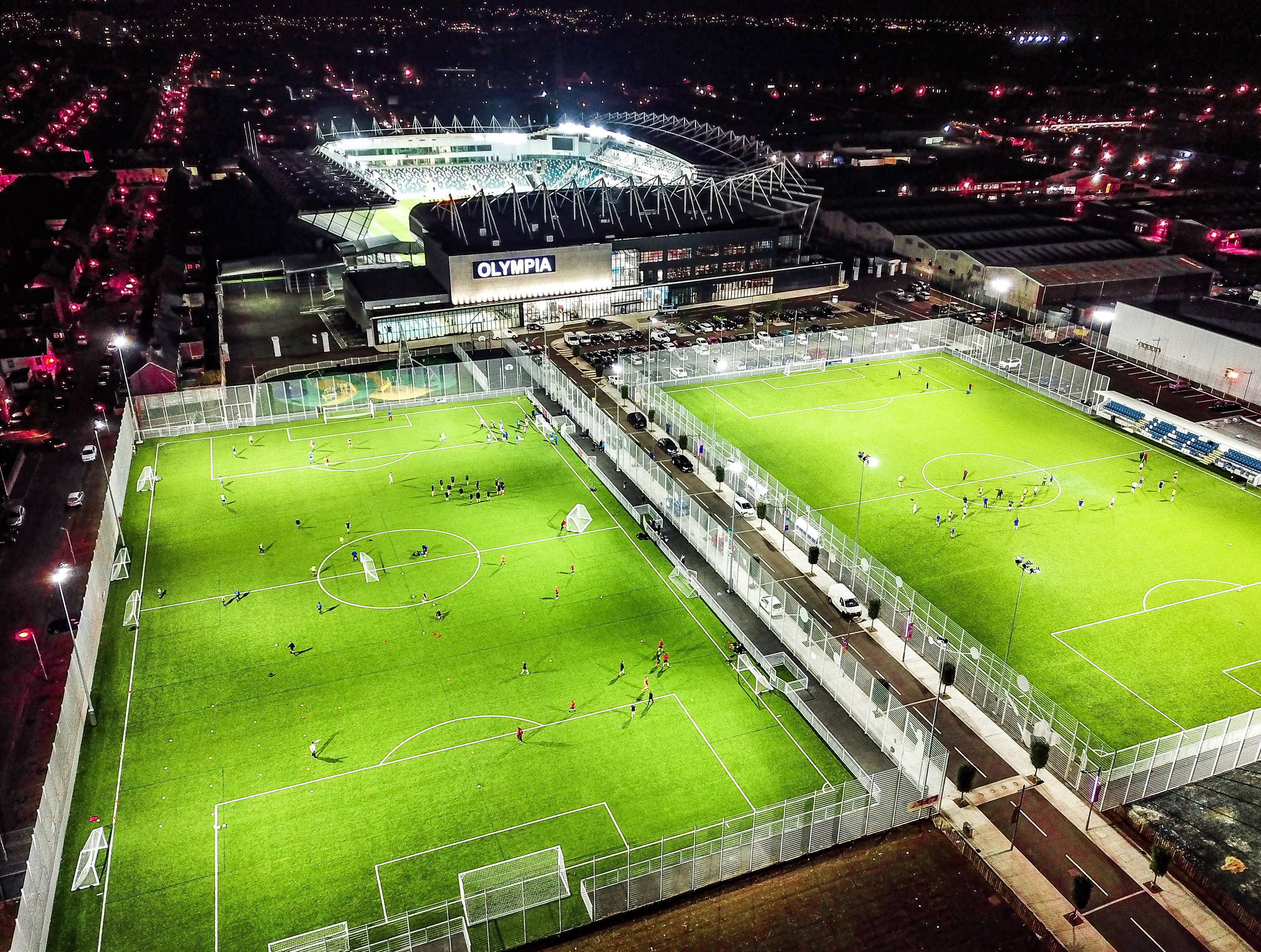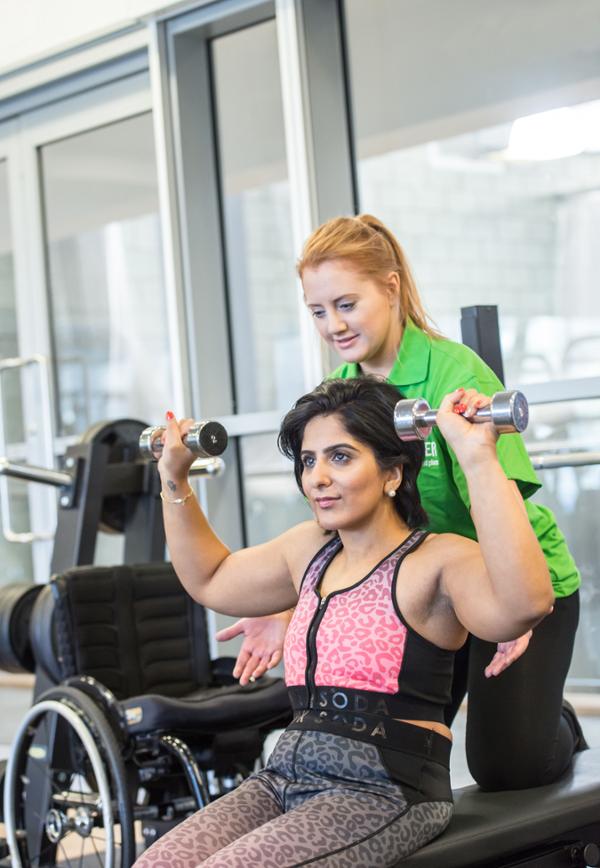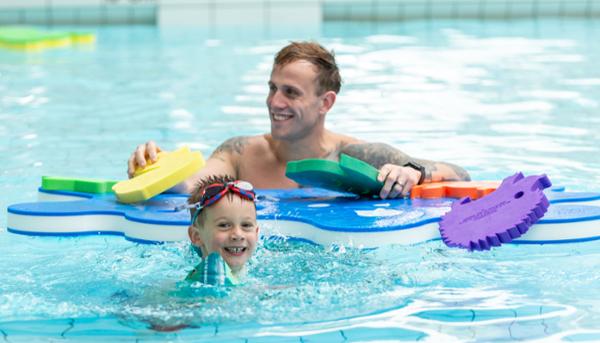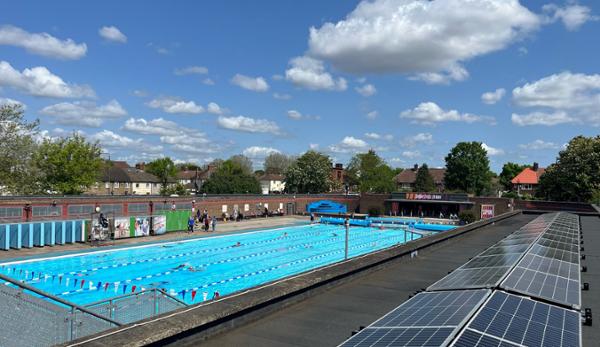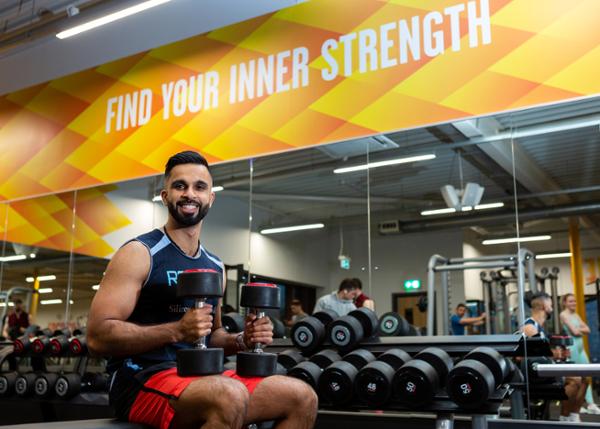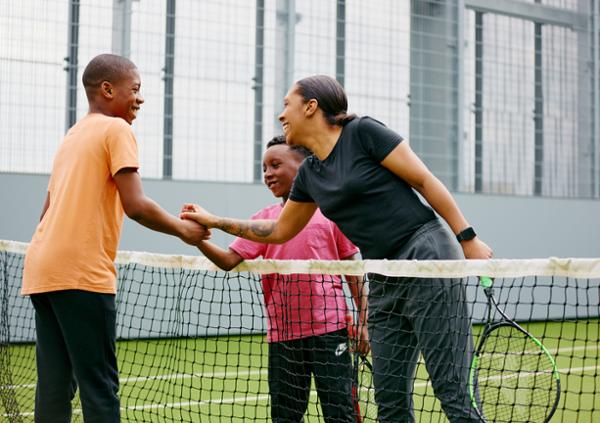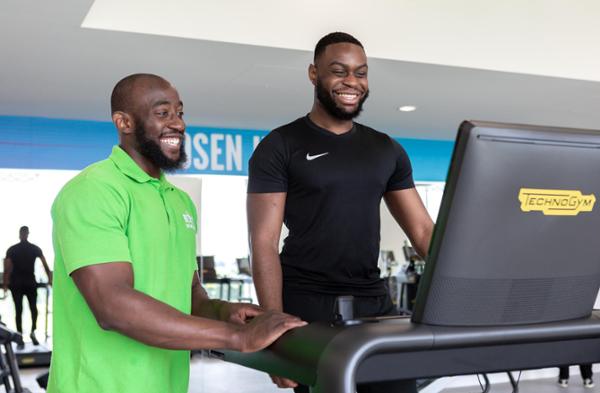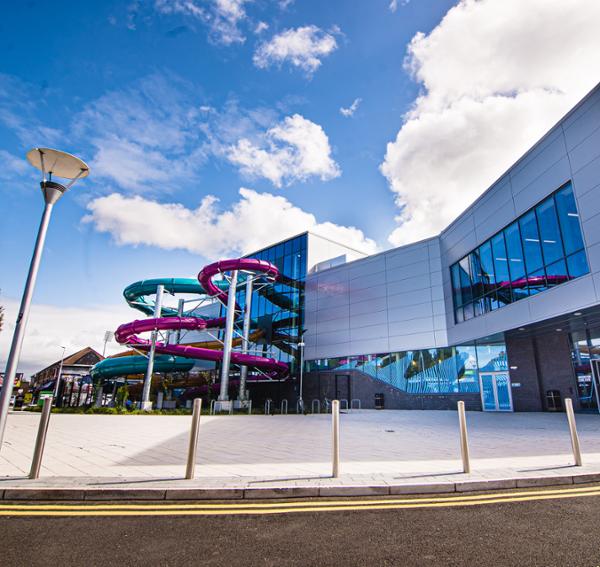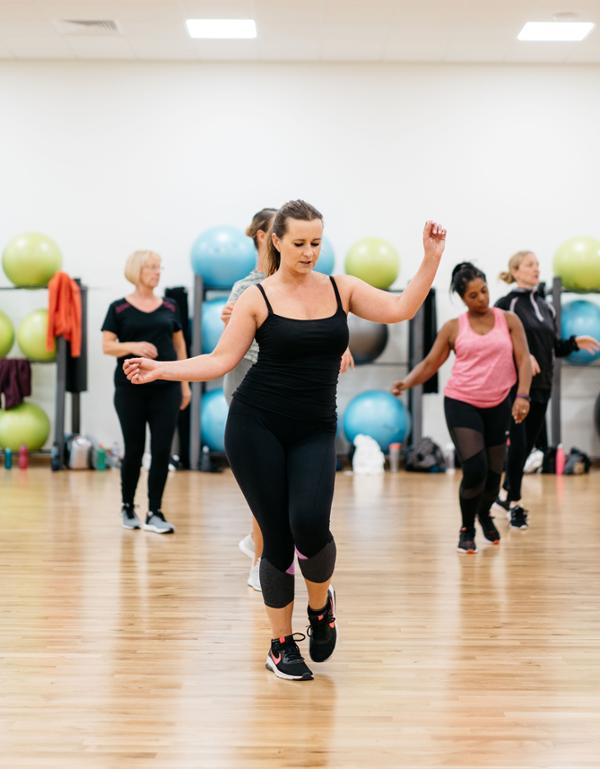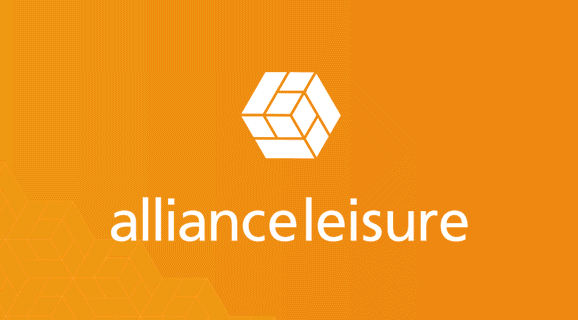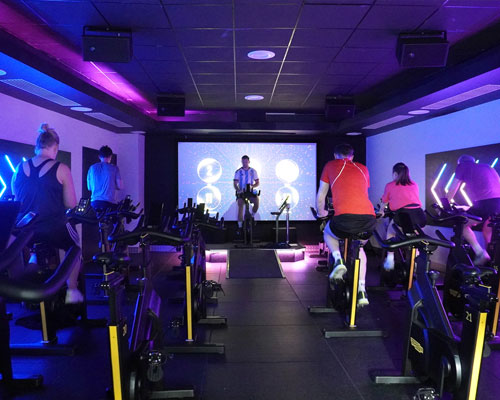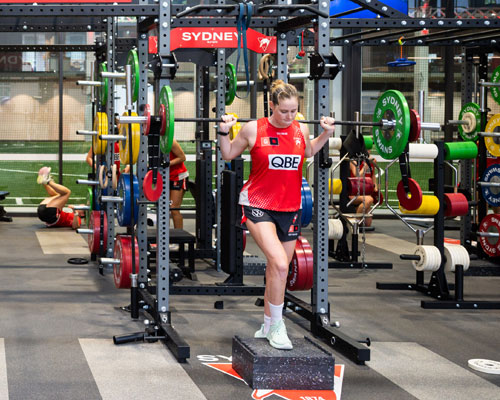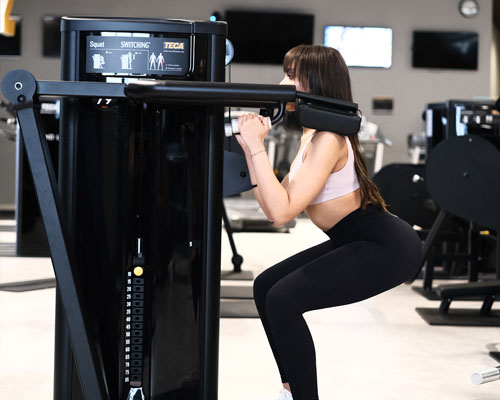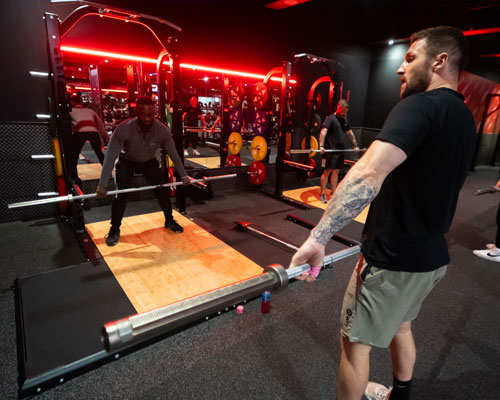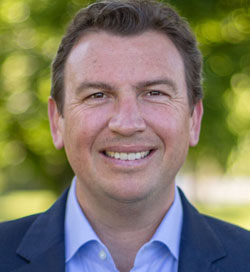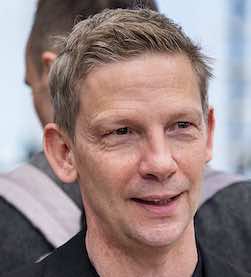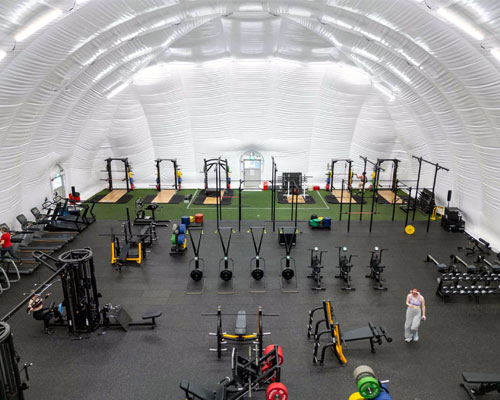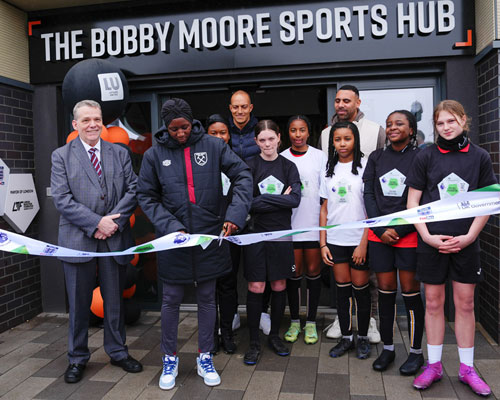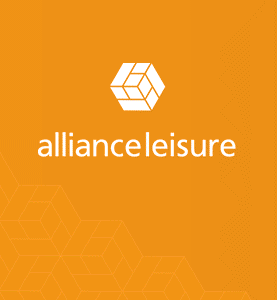features
Interview: Peter Bundey & Mark Sesnan
As GLL celebrates its 30th anniversary, its CEO and its founder look back at key milestones and share the headlines of a new five-year plan, as Kate Cracknell reports
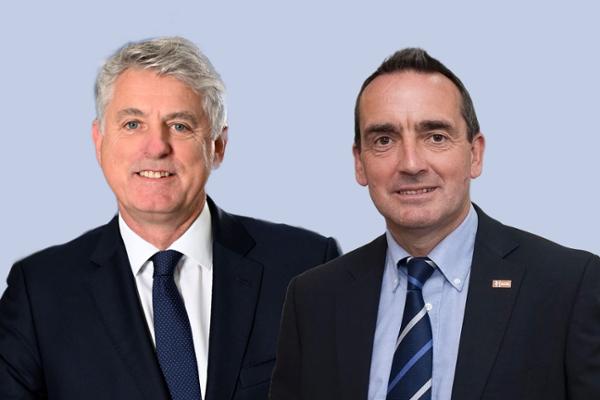
Why was GLL created?
Sesnan: A spin-out from Greenwich Council in 1993, GLL set out to disrupt compulsory competitive tendering (CCT), which was never going to be the solution for the sector.
You can’t commoditise what is, in essence, a health and wellbeing service – something that should exist in the community. It shouldn’t be a thing that people make money out of. It can be monetised, of course, but there has to be a balance.
That’s why local government was running public leisure centres and I supported that; all key GLL people worked for Greenwich Council at the point of transfer.
However, in those days, local government had money and there wasn’t commercial competition. As things changed, we recognised the need for a new model – one that was able to maximise social and financial outcomes. With GLL, we set out to create and prove this new model: socially minded but pragmatic, using the toolbox of the private sector to make public community services work better.
Over the last 30 years, we’ve facilitated communities across the UK to run their services better, providing help and support centrally with local teams running services. Our underlying mission has remained the same throughout and it will still be there when I’m gone, because people in the company believe in it: we exist to improve the physical, mental and social wellbeing of local communities.
Bundey: We’ve never wanted to be just another company in the marketplace. We set out with a wider set of ambitions and objectives and have always been true to them, seeing social enterprise as a better way of doing business that fits the delivery of public services in particular.
It’s an ethos that’s encapsulated in our Better brand, which as we grew geographically was something our partners embraced: they wanted to support better lives and better communities.
Sesnan: We’ve shown that you don’t need private sector investors, going as far as giving our staff 100 per cent ownership of GLL: one person, one share, one vote. It means everyone is invested in our success. GLL is non-profit distributing – we reinvest all profits into the business – but the governance is owned by the staff and has been for the last 30 years.
It will be for the next 70 if we stay true to our principles, which we intend to. We talk about being a 100-year company; we’re not in it for the short term.
What does the organisation look like now?
Bundey: We’re the largest social enterprise in the sector, operating 375 culture and leisure venues across the UK: 240 leisure facilities, 120 libraries and 15 children’s centres.
We work with councils and communities from Belfast to Cardiff, Cumbria to Cornwall, as well as operating our own asset-based estate of around 15 facilities.
Over the years, we’ve also brought in a lot of smaller trusts to become part of the GLL family.
We see ourselves as the forerunners of the social enterprise trust movement that has now established strong credibility within public services across the UK. And as the largest organisation in our sector, we believe we have a responsibility to be an exemplar, innovating and working not just to satisfy our customers, staff and clients, but also working and lobbying on behalf of the sector.
That’s something Mark always set out for GLL: the intent to be a collaborative organisation that works beyond what one might normally expect it to do, identifying where it can positively influence the agenda at a national or local government level.
Tell us more about your lobbying.
Bundey: For years, we’ve been pushing to have leisure recognised as a statutory service. I just don’t understand why, with today’s health agenda and pressure on the NHS, that isn’t be the case. We’ll certainly continue to lobby for it until it happens, because if leisure becomes a statutory service, local authorities will have to ensure it’s adequately funded.
Sesnan: Meanwhile, it’s been out of the COVID frying pan and into the fire of the energy crisis for our sector. Having lost £20m off our balance sheet during COVID, GLL was doing OK: we were back to about 80 per cent of our previous income; the sector generally was at about 65–75 per cent. Whoever you were, though, it certainly wasn’t the best time to find out your second largest cost, after staff, was going to treble almost overnight. For GLL, energy went up from around 10 per cent to about 25 per cent of our costs.
Running swimming pools is particularly challenging, because in the UK you can’t run pools without heat. Very roughly, the cost to heat a 25-metre pool has gone up from about £100k to about £250k a year.
Bundey: We lobbied hard to get government help for the sector, campaigning on all fronts to save swimming pools, as operators and local authorities were taken to the brink of affordability. Eventually government said it would give £60m – not a huge amount, but something – yet nobody’s seen a penny of it. Some of the smaller independent pool operators in particular are relying on that funding to keep them afloat. They’ve told the banks it’s coming. It’s been one of the biggest frustrations of the past 12 months.
Sesnan: On a more positive note, I’m proud of the way the health and fitness sector came together through COVID, galvanised by UK Active. Now, coming out of the other side, we’re also seeing collaboration in re-setting the agenda and taking seriously some of the issues around health. Public and private sectors agree on many things: the need to keep facilities open through COVID, to keep them open through the energy crisis and to protect the sector in the long run.
Moving forward, though, we need to work harder to galvanise the whole sport and physical activity sector into one powerful voice. We have Sport England, dozens of NGBs, CIMSPA, CLUK, SRA, the Activity Alliance and of course UK Active, to name just a few. What they don’t do is come together and say: ‘We are the sector – this is what we need.’ That’s what’s missing: nobody is doing the whole thing.
Bundey: There’s a real need to be collaborative as we look at how we can work within the health agenda, whether that’s prehab or rehab, musculoskeletal issues, Long-COVID or simply living well and taking the pressure off the NHS. At GLL, we’re certainly already working on hubs and programmes that we can deliver outside a clinical setting.
As a sector, we simply have to ensure people understand the value of what we do. It isn’t discretionary. It deserves statutory recognition.
What are your thoughts on councils taking leisure back in-house?
Sesnan: I’m totally against this and I don’t think councils should be allowed to get away with it without proper scrutiny. They need to be able prove that it’s in the best interests of residents, both financially and in terms of service capability. Spending huge sums of money to bring services in-house for purely political reasons is wrong and cannot be a priority for councils with big social challenges and limited funds.
Not only do most councils lack the expertise to run the services in-house, but independent consultants have warned councils it will cost them more.
In the case of Tower Hamlets, this was estimated at be an additional £2m a year; there’s nothing to say it will be any different in others.
This money is being spent purely because somebody believes that bringing leisure centres in-house will somehow make them better, even though there’s no evidence of that whatsoever.
For us, we had come to the end of these contracts and it’s absolutely fine if councils don’t want to work with GLL any more: we’re not the cheapest and frankly we can’t be, with everything we do. But get another operator in. Don’t take largely successful leisure centre services and deliberately choose to spend £2m more a year to run them yourselves. These are complex businesses in a competitive sector and councils just aren’t set up to run them. I’m afraid this decision will impact them more than it will us.
Bundey: It’s an occupational hazard of operating within a public service that at times, decisions are made for political reasons rather than value-for-money or what’s best for the service. But we move on and we focus on the willing partners that are happy to be part of our new five-year plan, which is all about innovation and impact and strengthening communities and health.
Tell us about your five-year plan
Bundey: We’re on a constant journey to keep challenging and improving ourselves: we’re happy to criticise ourselves, often before anyone else does, as we believe that’s the way you improve.
Over the last 30 years, we’ve been disruptors and have driven our own agenda. As Mark now moves into a special advisory role – and in this watershed moment brought about by the perfect storm of COVID and the energy crisis – it’s the perfect opportunity to re-establish our company values and cultural identity and look forward to the next five, 10, 30, 70 years.
On 2 November – at a House of Commons event to mark the 30th anniversary of GLL, the 15th anniversary of the GLL Sport Foundation and our 10th anniversary of operating libraries – we'll reveal more about our five-year plan. It’s different from previous plans and shares a series of exciting initiatives that we’ll be refining and rolling out over the next five years (see briefing below).
Sesnan: For me, this plan is about establishing a USP in a market where everyone spots and copies good ideas. What is GLL? How are we different from other operators? Why are we successful? Why should you buy our services and support our agenda?
This rethink is about the family, about health and wellbeing, about the communities we work in. It’s not about how many bits of gym kit we’ve got, or how many members. It’s about adding value.
How do you quantify your social value?
Bundey: As we’ve proven over the last 30 years, social enterprise is a very powerful way of delivering social change and social value.
Over the next five years, we’re looking at delivering £2bn of social value, which we can break down by borough and ward.
Our social value model, which we developed with 4Global, Experian and Sheffield Hallam, is based on government statistics relating to the value of physical activity in health and wellbeing education, crime diversion and so on – calculations are based on how often people are active – as well as the broader value of cultural activity library services.
Sesnan: Everything is open to discussion and debate, but for me, what’s important is the direction of travel. To all our partners, we say: your social value needs to improve every year. And that’s only going to happen by increasing your range of activities, to in turn engage more and more disadvantaged socio-economic groups, minority groups and younger and older people. Just filling your gym with 20- to 44-year-old white males won’t improve your social value.
We’re very proud of the GLL Sport Foundation, which we set up in 2008 when we kept coming across young, talented athletes who given up their sport because they couldn’t afford to train or compete,” says Bundey.
“As part of our community engagement work – part of our efforts to address inequalities not only in health, but also in opportunity – we wanted to help these young people fulfil their sporting potential and achieve their dreams.
“We began to offer access to our facilities and looked to our suppliers to join us with financial bursaries. We soon realised that, even though everyone in our scheme is in the top 10 of their age group nationally for their sport, we were often their only source of funding. Elite sport simply isn’t as well funded as people tend to think: 89 per cent of our athletes get no other funding whatsoever.
“The GLL Sport Foundation is now the biggest independent sports scheme for athletes in the UK, by far: we’ve given out 25,000 awards over the last 15 years, equating to £14m of value in cash and kind, and between them our athletes have won 85 medals at Olympic and Paralympic Games.
“We also continually evolve what we do, in close collaboration with our patron Sally Gunnell and our board of athletes, to ensure we understand how we can best make a difference. We’ve introduced physiotherapy and sports injury services, for example, and are teaming up with universities to look at the science behind performance. We’re also piloting a couple of injury prevention masterclasses.
“This year, to mark the foundation’s 15th anniversary, we’re announcing a new partnership with a charity called Switch the Play, so we can offer mental health and wellbeing support to athletes, even career advice. We’re trying to make our support as wraparound and athlete-focused as possible.”
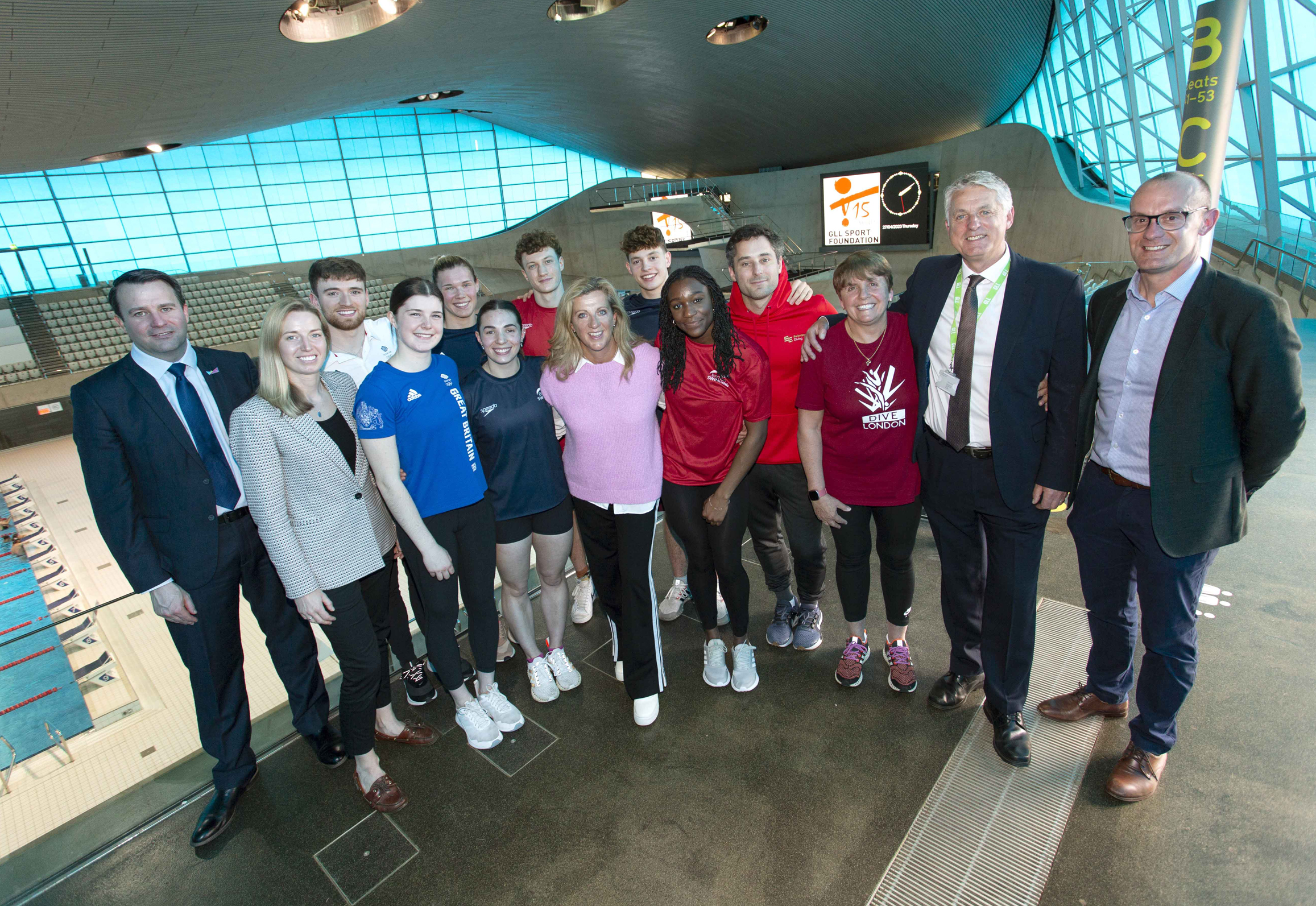
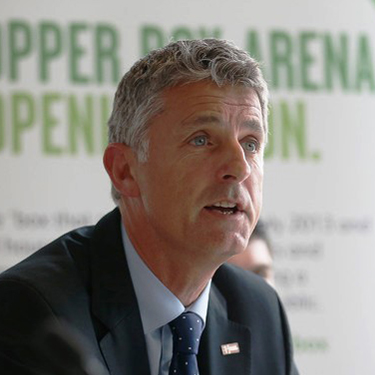
We’re creating product innovation centres where we’ll work with suppliers to pilot new concepts and ensure we have a family of products to appeal to all ages. We’re already working in the areas of eSports and immersive activity.
We’re going to launch more foundations, the first of which will be the Literary Foundation to promote writing and the role of libraries in society. Further down the track we’ll also launch our Futures Foundation, which will be agile and free to support changing social agendas and a wide range of social initiatives – things such as mental health in young people.
I’m really excited by some of the things we’re already doing in our libraries, refreshing layouts to engage younger people, introducing physical activity and running initiatives to encourage and support local start-ups, for example.
We’re looking to create trailblazer centres and facilities, working with fledgling local organisations – particularly social businesses – to help them incubate and accelerate their business models. This will help GLL nurture and work with an ethical supply chain, but will also promote ethical business generally within our local communities.
We’ll be linking with universities and colleges around the country to drive awareness of social enterprise among students, including an understanding of where it comes into play and its value and importance.
There’ll be a series of projects launching over the next five years around health interventions and health products, with lots more preventative programmes.
We recently achieved a 75 per cent completion rate in a new ‘Escape Pain’ programme, and are working on an ‘Add Five Years to Your Life’ programme at the moment.
The key is to speak in a language that’s understandable, appeals to a broad age range and really means something to people.
Moving forward, we’ll be talking to supply partners about how we innovate and move on this important agenda, as well as replicating what we’ve done at Charlton Lidon.
There, we operate a green gym that’s fully powered by renewable energy, with on-site solar panels generating more watts across the year than we need to run the gym – including air conditioning.
We’re putting sustainability at the heart of our planning and design, and we’re already seeing people really appreciate that.
We have 10,000 employees and are accredited as a Living Wage employer. We’re now launching a series of career promises, as well as flexible options for staff to say how – within the bounds of running a business – they’d like to work. That will include a focus on wellbeing, as well as volunteering, giving staff the time to get involved. It won’t just be binary – their time or company time – but blended.
